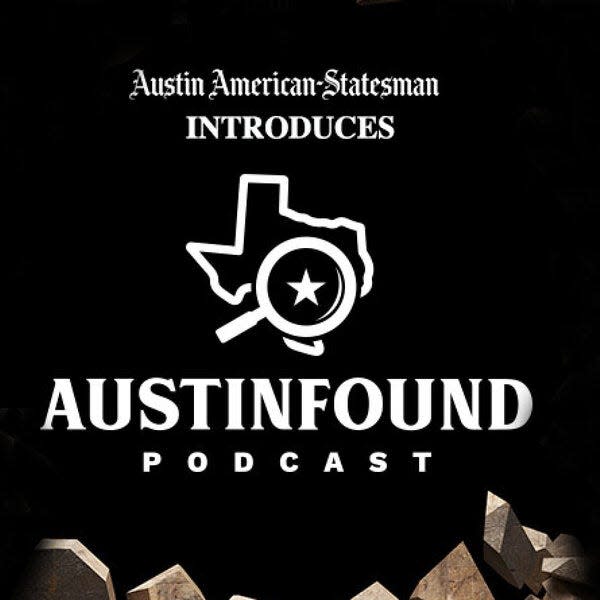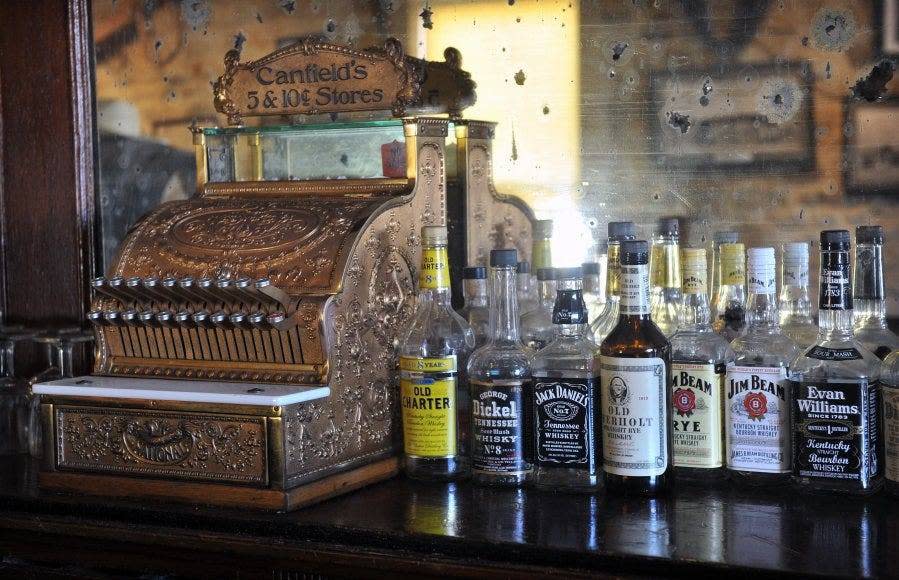More madness and mayhem from the 1960s and 1970s crime bosses in Austin
- Oops!Something went wrong.Please try again later.
Dear Texas history buffs,
Welcome back to “Think, Texas,” your free weekly digital newsletter about all things Texas past.
So many of you responded to the June 20 column about the 1970s "Junkyard Mafia," I had to follow up.
Jesse Sublett, author of ""Last Gangster in Austin: Frank Smith, Ronnie Earle and the End of the Junkyard Mafia," also received a batch of fresh tips. He shared this one about a slapstick crime scene:
"Since the book came out, I have heard from many, many people," Sublett says, "from ex-cons who did time with Frank Smith to people who worked in the D.A.’s office with Ronnie Earle, and I expect that the anecdotes will keep trickling in as time goes on."
If Sublett had to mention just one of the latest accounts to come his way, it would be the memories of Carolee Smith, who happened to be working as a bank teller at the Austin National Bank drive-in window when John Calvin Bailey cashed his check from Frank Smith for setting the arson fire at Ike Rabb’s salvage pool.
"Bailey first tried walking through the drive-in, but that was against the rules," Sublett says. "He came back in a car, but he had no I.D. Carolee then telephoned (Frank) Smith to ascertain the validity of the check."
“I will never forget how strange that call was,” the former bank teller told Sublett. (Frank) Smith not only described Bailey, but claimed he was a drug addict and if Carolee wanted anything illegal done, Bailey was her man.
"She cashed the check," Sublett continues. "Soon afterward, Bailey returned, politely stating that she had shorted him $100. Bailey had to come back a fourth time, after her shift, when she determined that her drawer was indeed off by $100."
Bailey got his money.
"I was so bad at that job,” Carolee Smith confessed to Sublett. "I seriously don’t think I ever balanced my window at the end of the day. Ever. I eventually got fired."
Later, Carolee Smith was subpoenaed to testify at Frank Smith's trial in Fredericksburg.
"Frank’s habit of paying his thugs by check became hugely important in proving (his) culpability as a criminal mastermind," Sublett says. "The slapstick series of events Carolee experienced at her teller’s window had vividly imprinted itself on her memory, and she proved to be a very valuable witness."
Miss a column? Go to our column archives.
Miss a newsletter? Go to our newsletter archives.
Sign up: To get the free Think, Texas weekly digital newsletter, go to the American-Statesman newsletter page, or that of your hometown USA Today newspaper in Texas.
THE COLUMN
Readers react to the gaudy crimes of 1960s and 1970s Austin gangsters
Readers swarmed all over my June 20 column about a 1970s crime mob depicted in author and musician Jesse Sublett's recent noir-tinted book, "Last Gangster in Austin: Frank Smith, Ronnie Earle and the End of the Junkyard Mafia."
Some recalled personal interactions with the flamboyant crime boss, Smith, the kingpin of a bail bond and auto salvage empire that rambled well beyond Austin.
Others fondly remembered Ronnie Earle, the idealistic Travis County district attorney who brought Smith down.
A first for this column: One reader pinned an unsolved murder on Smith. Regular followers of Think, Texas know that I love solving historical mysteries — please send them to mbarnes@statesman.com — but this particular cold case is probably beyond my powers.
Still other readers responded to references in the column to another hoodlum, Tim Overton, sometimes associated with longtime South Austin madam Hattie Valdes, real-life characters borrowed from Sublett's previous and closely related book, "1960s Austin Gangsters: Organized Crime That Rocked the Capital."
Overton's gang, populated by former football players, appears to have been less sophisticated, in Sublett's telling, than Smith's, but both could be brutal.
THE PODCAST
On the latest episode of "Austin Found" podcast, J.B. Hager and I chat about the Gault site, an archeological wonder that shows that Texans go back 20,000.

HOMETOWN HISTORY
This week's Hometown History theme is cattle drives
· From Abilene: Historians debate the Chisholm Trail in Texas
· From Amarillo: Remembering the cowboys behind the Lonesome Dove saga
· From Austin: Hit the fabled Chisholm Trail with these 10 books
· From Corpus Christi: Ranch near Petronila was the largest in the hemisphere

· From El Paso: The city's four "c's": climate, cattle, cotton and copper
· From Lubbock: Almost forgotten cattle drive route: The Great Western Trail
· From San Angelo: Cattle drives peaked, trailed off
· From Wichita Falls: Herd manager shares Texas longhorn history
FUN TEXAS FACT
African American bus franchise in Houston suburb first in the South
On July 1, 1959, the state of Texas granted the first bus franchise in the South owned and operated by African Americans. The Acres Homes Transit Company served the predominantly black community of Acres Homes, nine miles northwest of downtown Houston.
Living outside the city limits and without adequate public transportation, the residents petitioned the city hall for a permit to operate a suburban bus franchise. The company had four buses that made 43 round trips daily between downtown Houston and Acres Homes.
When Acres Homes was annexed by the city, the company was bought by Houston Rapid Transit Lines.
(Texas Day by Day / Texas State Historical Association) READ MORE
TEXAS TITLES
I recommend: "Conquistadores: A New History of Spanish Discovery and Conquest" by Francisco Cervantes
Historian Cervantes breathes fresh life into the familiar accounts of the Spanish explorations and conquests in the New World. He is frank about the brutality of the conquistadores, but he also reflects on the complicated and sometimes contradictory religious and philosophical underpinnings of a story that is usually told, either as a swashbuckling adventure tale, or as a damning morality play.
Happy Trails,
Michael Barnes, Columnist
Think, Texas and Austin American-Statesman

Email: mbarnes@statesman.com
Twitter: twitter.com/outandabout
This article originally appeared on Austin American-Statesman: More madness and mayhem from 1960s and 1970s crime bosses in Austin

